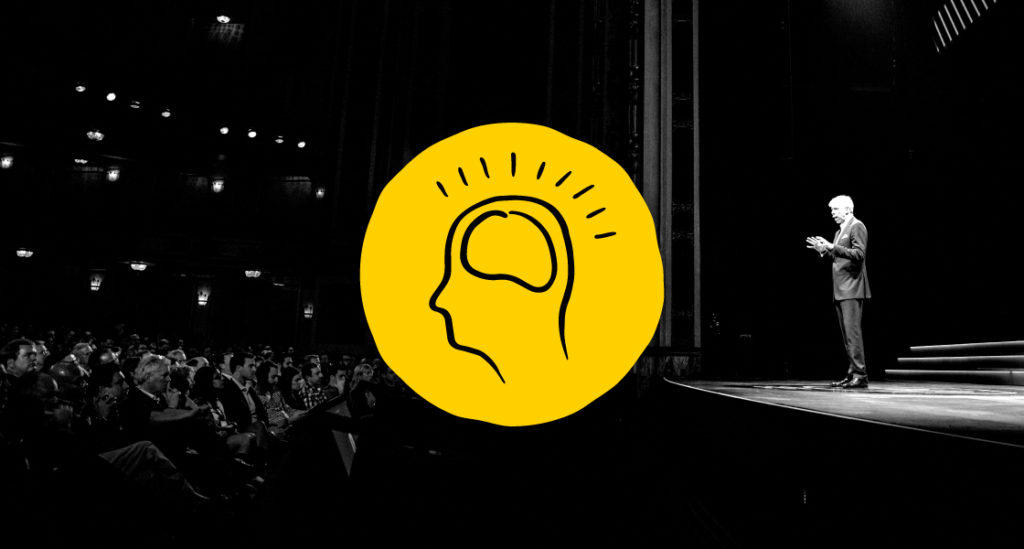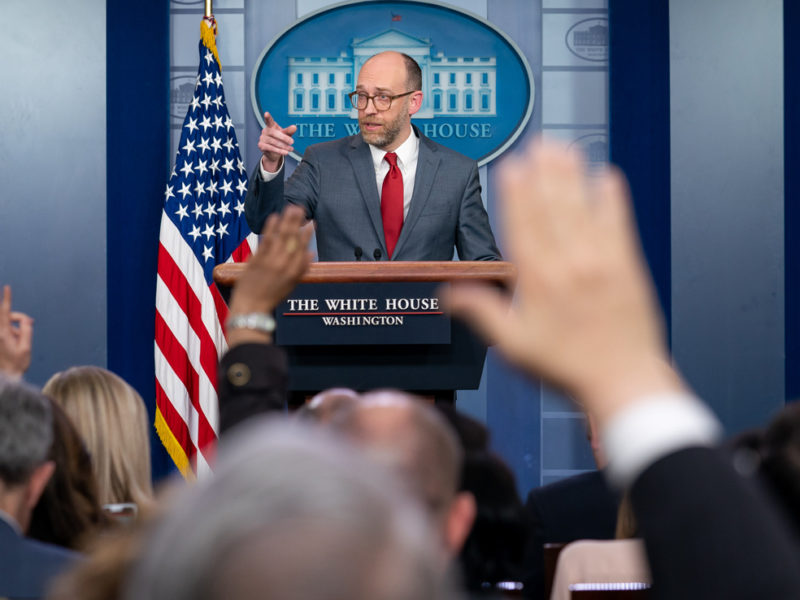
Discover How Sterling Partners Co-Founder Steven Taslitz Defines Genius

It’s easy to think of a genius as a lone person in a room who comes up with a brilliant idea—but that’s rarely the case. How is genius define, and how does it manifest? Chicago Ideas will dig into both of these questions and more at our Unlocking Genius: The Dynamics Behind The World’s Greatest Minds Talk. But before we hear from a group of brilliant minds on stage, we sat down with the Co-Founder and Chairman of Sterling Partners, which is sponsoring the event, to talk about what “genius” really means.
How do you define genius?
To me, a genius is someone who is able to see the world in a new way that is different from the common point of view. I believe there are various ways to exhibit genius, including the creative and imaginative genius of artists, musicians, architects and writers, along with the more logical genius of those who have the unique ability to process information, digest it, rethink it and then apply those concepts to other areas. I think genius can also be demonstrated through ideas and innovation, or the work of a collective group.
Everyone has genius inside of them, but for that genius to flourish a person or group must have resilience, grit and a high tolerance for risk.
Tell us about someone you’ve encountered who you consider to be genius? What made them stand out? How has that person changed your worldview?
We are all exposed to genius every day, whether it’s the first time you see the masters of art, hear a symphony or great rock song or watch a movie that moves you. I see it when I walk out of Sterling’s office and look at the creativity in our skyline and how our great city of Chicago was designed by Daniel Burnham.
In regards to business, I saw genius during my first entrepreneurial experience at 21 years old. My partners and I read about a new technology, thought about a greater application, created a product, implemented the idea and then eventually got a big company to buy it. That first foray cemented Sterling’s investment approach. We actively seek out people and businesses who provide a unique or innovative solution to a problem, or a better, more effective way to produce optimal outcomes.
For example, take Rick Covert, an emergency room doctor who felt the ER experience was a lose-lose-lose for doctors, patients and insurance companies. In response to this problem, he came up with a new system for high-quality emergency medical care via Adeptus Health and created a multi-billion dollar industry. Genius. George Slessman founded a company called IO in his garage with three laptops. He transformed the data center from a clunky and expensive business need into a flexible solution that drives business value. Genius. Another example is School of Rock, located here in Chicago. Someone decided a better way to teach music to children was through experiential group performances. Genius.
What is the role that an organization and its culture can play in fostering genius?
What a company and CEO can do to foster genius is break down the walls between the various departments of a business and get people working together. In most businesses, people are very siloed and focused only on their niche. This creates a very myopic environment where people don’t necessarily understand how their role or responsibilities impact all other areas of the company. Creating a culture in which creativity and collaboration are encouraged and no one feels threatened fosters genius and problem solving, and keeps a business healthy and strong.
How does Sterling and its portfolio companies cultivate genius?
If you visited Sterling’s office, you’d be surprised at what you saw. We’re not a typical private equity firm. The entire office is designed for communication, collaboration, and accidental collisions. We have a completely unassigned, open layout with a walkable perimeter, a variety of seating and standing desk options, transparent and flexible conference rooms and 365 degree views of the city and lake. Our space reflects our forward-thinking, out-of-the box approach, and our ability to challenge the status quo, to look around the corner and see the next trend in health care services, business services or education.
Sterling created an infrastructure that breeds collaboration, and that collaboration seeps into everything we do with our portfolio companies. Our CEOs are often at our office and we want them to see how Sterling operates, communicates and problem solves, so they might take that style and apply it to their own company and employees. We host an annual CEO and Director Summit. The goal is to bring people together to share ideas and best practices, and inspire new ways of thinking. For example, at this year’s Summit, we brought in someone to help us implement games and play into the workplace, which has been shown to increase work productivity.
We also conduct thoughtful and strategic searches for the visionaries and operators we want to lead our companies. When we look to hire someone, we rank creativity, resilience and leadership skills at the top. We’ve found that people with those characteristics have a better ability to cultivate genius within their organization or company.
Often those who are considered genius are presenting new ideas which are at conflict with the traditional way of doing things and potentially cause friction. Have you ever confronted that dynamic in your career and how have you approached it?
In my line of work, I’ve been in quite a few situations in which genius or innovation is being stifled or destroyed. The reasons can range from poor leadership and market changes to government regulations and political ideology. Regardless of the reason, it’s always frustrating.
Geniuses are not afraid to fight or challenge the status quo. Sterling was on the frontlines of the online education movement. When schools first started talking about non-traditional ways of learning, people were scared and wanted nothing to do with it. Today, can you imagine not having that as an option?
What role do individuals that exhibit genius play in building successful organizations and outcomes?
Without resilient individuals who are creative and unafraid to fail, an organization would self-destruct. Elon Musk almost bankrupted Tesla a few times before it became the market leader in electric automobiles. Apple transformed itself from a hardware provider to an innovative and cutting-edge software company. A genius leader will inspire genius within their organization. Without the individuals behind the scenes at those companies, I have no doubt Apple and Telsa would not be as successful as they are today even with the visionaries, great ideas and concepts from which they were built.




